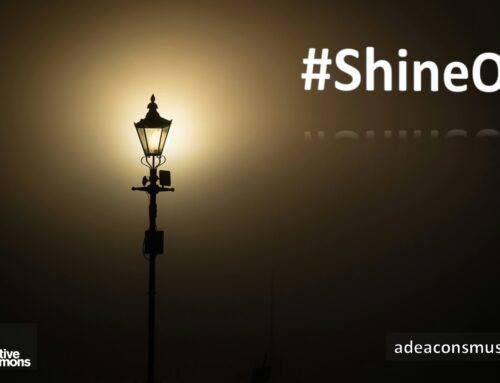I wish I did not feel Called to blog this week …
I pray that the narrative of hate did not exist …
I find my soul torn asunder knowing that the marginalised continue to suffer in a politicised world in which power and violence violate the sanctity of life …
The recent assault on life, dignity and diversity in Orlando has been numbing. Not just for the violence that exterminated sacred lives, but the ensuing political discourse has been horrible itself. This account, which intends to seek blame and polarise, has been abhorrent.
As I listen(ed) to this blame game – whether about religion, gun violence, political choices, or strategies to address terrorism it has been tempting to engage. This detached and – at times – abstract debate so easily removes us from wailing lament. It also silences compassion, which invites (those of us who inherit a new world filled with death and the potential for new choices) to reply.
The reality is that – from a perspective of faith – there is no easy answer. No analysis or critique, which is shaped in a sound byte, can address the complexity of an interconnected world. A world in which mental illness, racism, geo-politics, gender and sexual identity – to name only a few of the strands that bind this tapestry of pain – are constantly defining what and who is normal.
What I do know is that this ministry, which Christians constantly endeavour to model, is grounded in a radical compassion. One that seeks to hold all involved with love. Any knee jerk response, without first offering unconditional love to all who weep, hurt and suffer, simply leads to a world further entrenched in violence: whether that is punctuated by a word or bullet. Bullets and words, after all, are not semantic talking points, they are as interconnected as an immune system virally under siege.
The work with which Jesus left us always points not to power, but to the oppressed and hurting. It is in that possible response, that new relationships might lead to that which we cannot yet imagine. Looking to power simply and always reinforces what is.
No matter the work toward embracing (a theology) diversity as a model that recognises ever persons' (inherent and blessed) dignity that we might assume has been done and accomplished, we have been reminded that an assault on the GLBTQ community affects all of us. How we respond, is a reflection for how we care for ourselves. How we hold the Other, as tears bleed, stands before us as judge. What we do, in respect to the root causes, eventually reflects whether or not that which is (capitalize?) becomes that which was (capitalize?) or continues to be that which will be.
I wish there was a neat and profound way to wrap this up. It would be nice if words could fix the fibre, which collectively binds us, by knitting it back together. But there are no such words, just action …
maybe, as more than one survivor has shared, how we love one another is a helpful way to imagine a different story …
maybe how we see love in this horror that defies logic of binaries such as right and wrong, it might point us to an old narrative …
maybe, seeing Jesus sitting with the demons and criminals, holding the marginalised and feeding the despised offers us a way to pause …
a way to let go of solutions …
a way to simply hold the dying …
care for the living …
walk with the healing …
For now, maybe, that is enough …







Your reflections are most welcome!